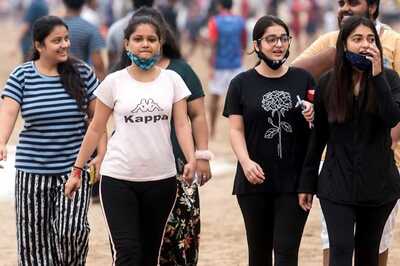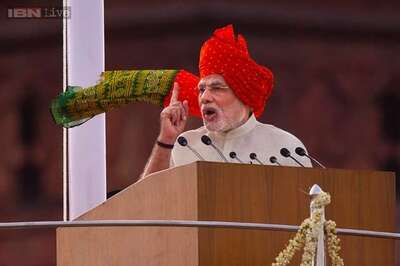
views
A scientist at the University of Agricultural Sciences on Monday expressed serious concerns on the availability of seeds for next year.
During a discussion on the present drought situation, University of Agricultural Sciences Vice-chancellor Dr K Narayana Gowda said that despite the varsity submitting the contingency plan for crops on time to the government, it cannot be implemented as the state (Karnataka State Seeds Corporation) was unable to produce/ deliver those varieties to the farmers at the set time. However, to mitigate losses, the scientists are advising farmers to adopt taggered nursery, seed hardening, contour cultivation, setting up of small section bunds, dry sowing for eight to 10 days before rains with 15 to 20 per cent higher seed rate.
“The water level at the KRS dam stood at 88.90 cusecs as against the maximum level of 124.80 ft. This can only be used for drinking purpose and would not meet the farming needs and this is a serious concern for the farmers of Mandya region,” Gowda said. “Sugarcane and maize are already withering in some place and fodder for cattle would be yet another threat in the coming days,” the vice-chancellor added.
The government has declared 149 taluks including, Bangalore, Shimoga, Chikmagalur, Mysore and Belgaum districts that are normally known to receive good rains, as drought-hit for this year. The taluks which were declared as drought prone are Anekal, Bangalore Rural, Bangalore South, Bangalore East, Hoskote, Nelamangala, Ramanagar, Malur, Channagiri, Harihara, Hunsur, H D Kote, Gokak, Bhadravathi, Shimoga, Shikaripura, Tarikere, Channagiri and Alur, a release said.
According to the IMD officials, between June 1 and August 6, the State received 324.4 mm rainfall as against the normal 525 mm thus recording a deficit of 38 per cent and South Interior Karnataka seem to be the worst hit. Even in the coastal areas the department terms there is a “meteorological drought” but this is not likely to affect food production.
Prof M B Raje Gowda from the department of agro-meteorology, however agreed that they failed in the long-term weather forecast as several error were recorded during the transmission of weather observations by observers and compilers.




















Comments
0 comment